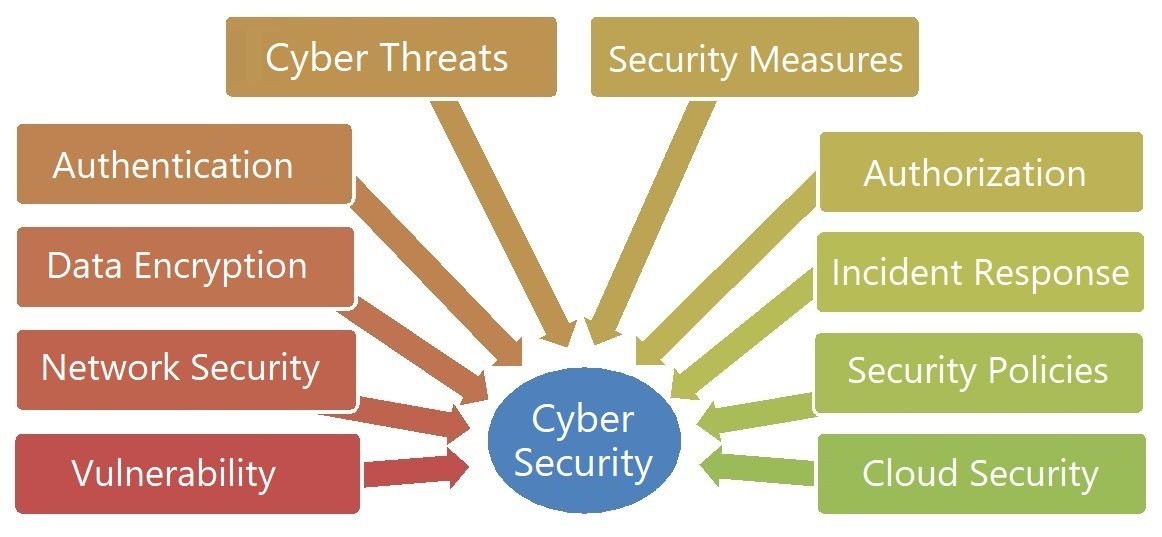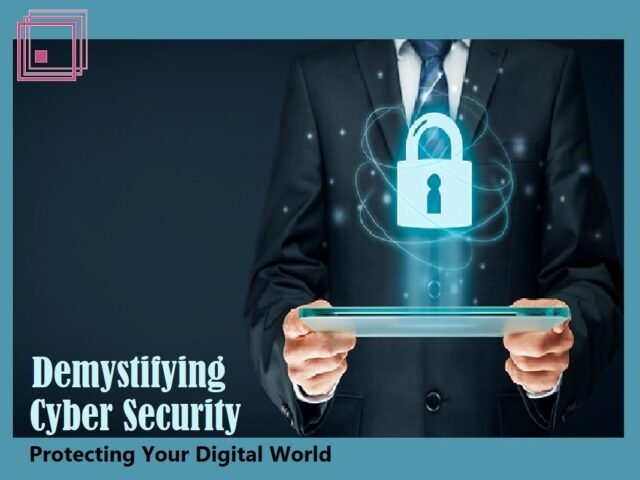Cyber Security
Today, the term “Cyber Security” has become increasingly important. Picture the internet as a bustling city, and cyber security as the superhero protecting us from digital villains. This article explores the basics of cyber security in everyday language, aiming to demystify the concept and empower everyone to navigate the online world safely.
What is Cyber Security?
Simply, Cybersecurity is the set of practices, technologies, and measures that safeguard the digital home from unauthorized access, data breaches, and cyber attacks. In today’s interconnected world, where we rely on the internet for almost everything, from shopping to socializing, it’s crucial to understand the importance of cybersecurity. Cybersecurity is like a shield that protects your digital life from potential threats and dangers lurking in the online realm.

Why is Cyber Security Important?
- Protecting Personal Information: Cybersecurity helps keep your personal information, such as passwords, bank details, and addresses, safe from hackers who may attempt to steal or misuse them.
- Preventing Identity Theft: Ever heard of identity theft? It’s like someone pretending to be you in the digital world. Cybersecurity measures work to prevent such impersonation and keep your identity secure.
- Safeguarding Devices: Your devices, like your computer or smartphone, are vulnerable to viruses and malicious software. Cybersecurity ensures that your gadgets remain healthy and don’t fall victim to harmful attacks.
- Securing Online Transactions: When you shop online or perform banking transactions, cybersecurity ensures that your financial information is kept confidential and protected from cybercriminals.
Basic Cybersecurity Tips
- Strong Passwords: Use strong, unique passwords for your online accounts. A strong password typically includes a mix of letters, numbers, and special characters.
- Update Regularly: Keep your devices and software up to date. Updates often contain security patches that fix vulnerabilities and protect your system.
- Be Cautious Online: Avoid clicking on suspicious links or downloading files from unknown sources. Cybercriminals often use these tactics to infect your device with malware.
- Use Antivirus Software: Install reputable antivirus software to scan and protect your devices from viruses and malicious software.
- Enable Two-Factor Authentication (2FA):Whenever possible, enable 2FA for your online accounts. This adds an extra layer of security by requiring a second form of verification, such as a code sent to your phone.
Remember,
- Cybersecurity is a shared responsibility.
- Individuals need to be aware and proactive in safeguarding their digital space.
- We can collectively create a safer and more secure online environment for everyone.
- Cyber threats are real, but so are the measures to protect against them.
- We can enjoy the vast benefits of the internet while keeping our information and devices safe from harm.
- Stay secure, stay informed!
also see:
| HTML | DATA STRUCTURE |
| DBMS | REASONING |
| C PROGRAM | APTITUDE |
| E-LEARNING |







